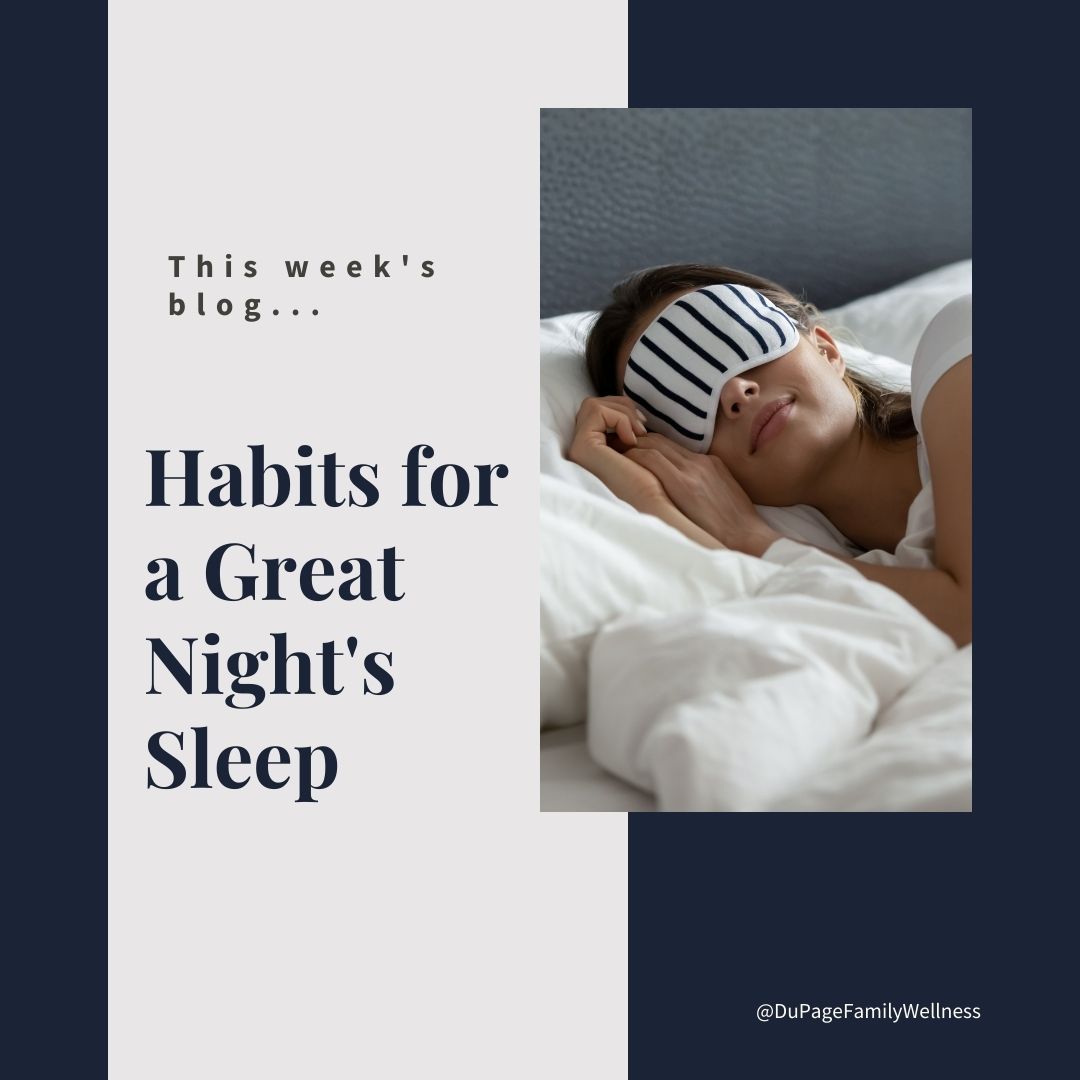 Between work, activities, and family, life can feel pretty overwhelming!
Between work, activities, and family, life can feel pretty overwhelming!
You may feel like there aren’t enough hours in the day, so there simply isn’t time to get a good night’s sleep. But sleep is one of the most fundamental functions we do each day.
Without good sleep you will not only feel terrible, but you will begin to damage your body.
So, how do you get a good night’s sleep when you have so much on your plate?
Let’s dive into that question and see what we can do to increase the quality of our sleep.
A Quick Reminder
Sleep hygiene is really important, but no amount of sleep hygiene will help if you don’t allow enough time for sleep!
Research has shown that the average person needs anywhere from seven to nine hours of sleep per night. This varies from person to person, so if you haven’t done the exercise from last week’s blog you may want to.
Your Exposure to Light
Circadian rhythm and the sleep/wake cycle can really be affected by light. Most people think this means making sure your room is dark when you go to sleep, but there is more to it than that.
Your light exposure matters from the moment you get up in the morning. Research has shown that getting bright light in the morning is the most important habit in getting a good night’s sleep. The morning light helps reset your circadian rhythm, setting you up for a good night’s sleep.
If you are in an area that doesn’t have a lot of natural light in the morning you can use a light machine in replace of the sunshine. It won’t give you all the health benefits, but it is a good alternative when necessary.
Read more ...
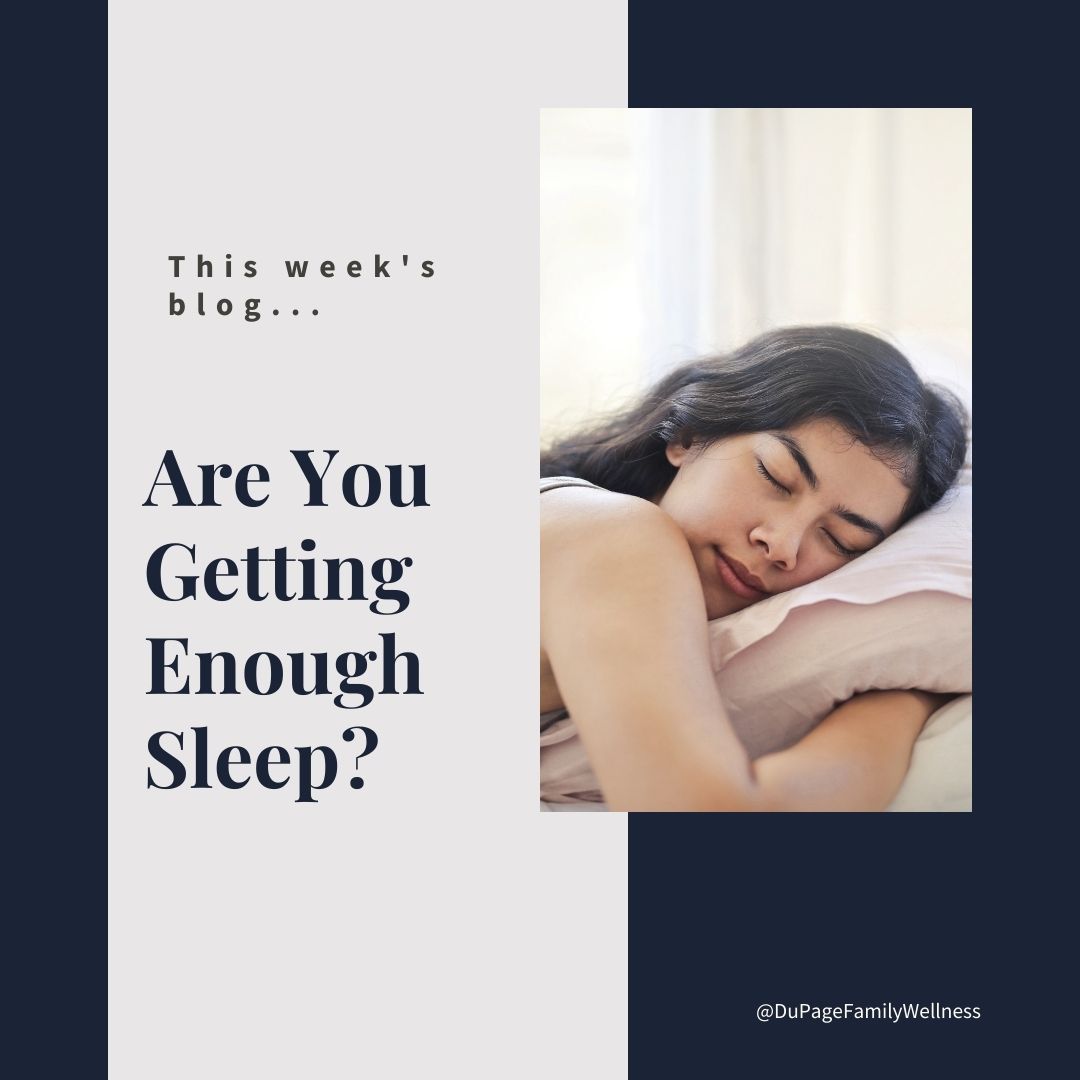 Between work, activities, and family, life can feel pretty overwhelming. You may feel like there aren’t enough hours in the day, so there simply isn’t time to get a good night’s sleep. But sleep is one of the most fundamental functions we do each day.
Between work, activities, and family, life can feel pretty overwhelming. You may feel like there aren’t enough hours in the day, so there simply isn’t time to get a good night’s sleep. But sleep is one of the most fundamental functions we do each day.
Without good sleep you will not only feel terrible, but you will begin to damage your body. So, how much sleep do you need, and how can you tell if you are getting enough?
Let’s dive into that question and see what your body needs to function at its best.
Sleep Research
Researchers took a group of people, put them in a stimulus free room for 14-24 hours a day, and monitored their sleep. There were no clocks, so subjects didn’t know when they were going to bed or waking up.
The first couple days of the study, sleep times averaged 12-20 hours per night! This seems to indicate that many of the subjects were in a “sleep debt” going into the study, meaning their bodies were trying to catch up from chronic under sleeping.
Over a few days, the participants' sleep began to average approximately 8 hours a night (with some sleeping more, and some sleeping less).
How Much Sleep Is Right for Me?
Since everyone’s body is different, let’s look into how you can determine how much sleep your body needs?
Sleep researchers have noted that decreasing sleep time has a strong impact on reaction time and other mental functions. You can use “reaction time” to determine if the number of hours that you are sleeping is ideal for you.
Read more ...
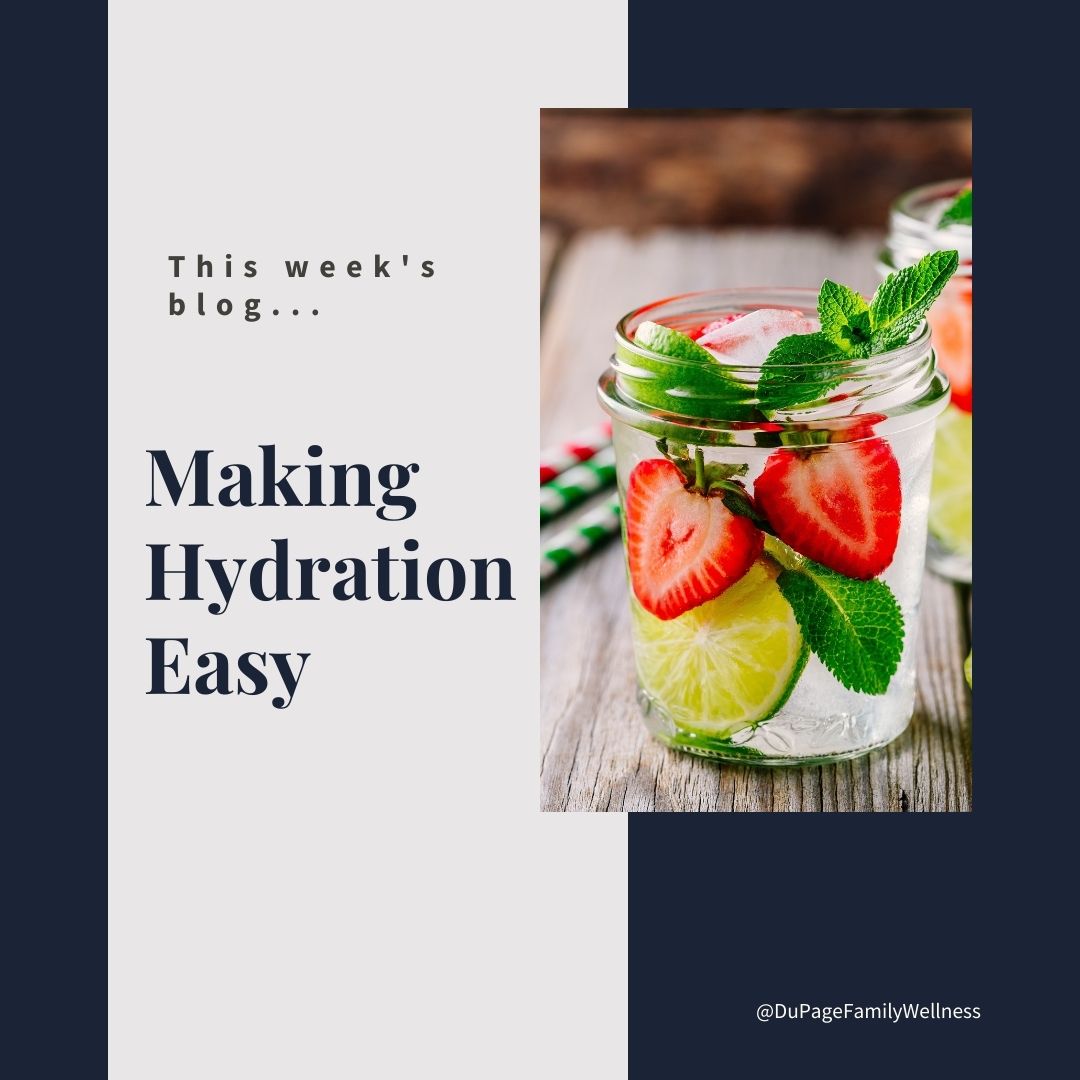 You’ve heard that you should get eight glasses of water a day, but is that really correct?
You’ve heard that you should get eight glasses of water a day, but is that really correct?
In their book Quench, authors Cohen and Bria explain that “for many years, we’ve operated with the assumption that the path to hydration was drinking eight glasses of water daily—the picture is actually much more complex.”
Let’s explore this theory and see if there is a way to work smarter rather than harder when with our hydration.
Background
Gina Bria was an anthropologist studying how desert cultures survived with very little water when she got a call from her mother’s care facility.
She was dismayed to hear that her mother was suffering from chronic dehydration. Bria decided to delve into her research to see if there was anything that she could learn from the desert cultures to help her mom.
Bria learned from her research that the Tarahumara people of Mexico used chia seeds to aid in hydration. Deciding to adapt this practice for her mother, she used her coffee grinder to turn some chia seeds into powder and instructed the caregiver to add it to her mom’s orange juice each morning.
That did the trick, and her mom did not have any more issues with chronic dehydration. This encouraged her to research a form of hydration known as “gel water.”
What Is Gel Water?
Read more ...
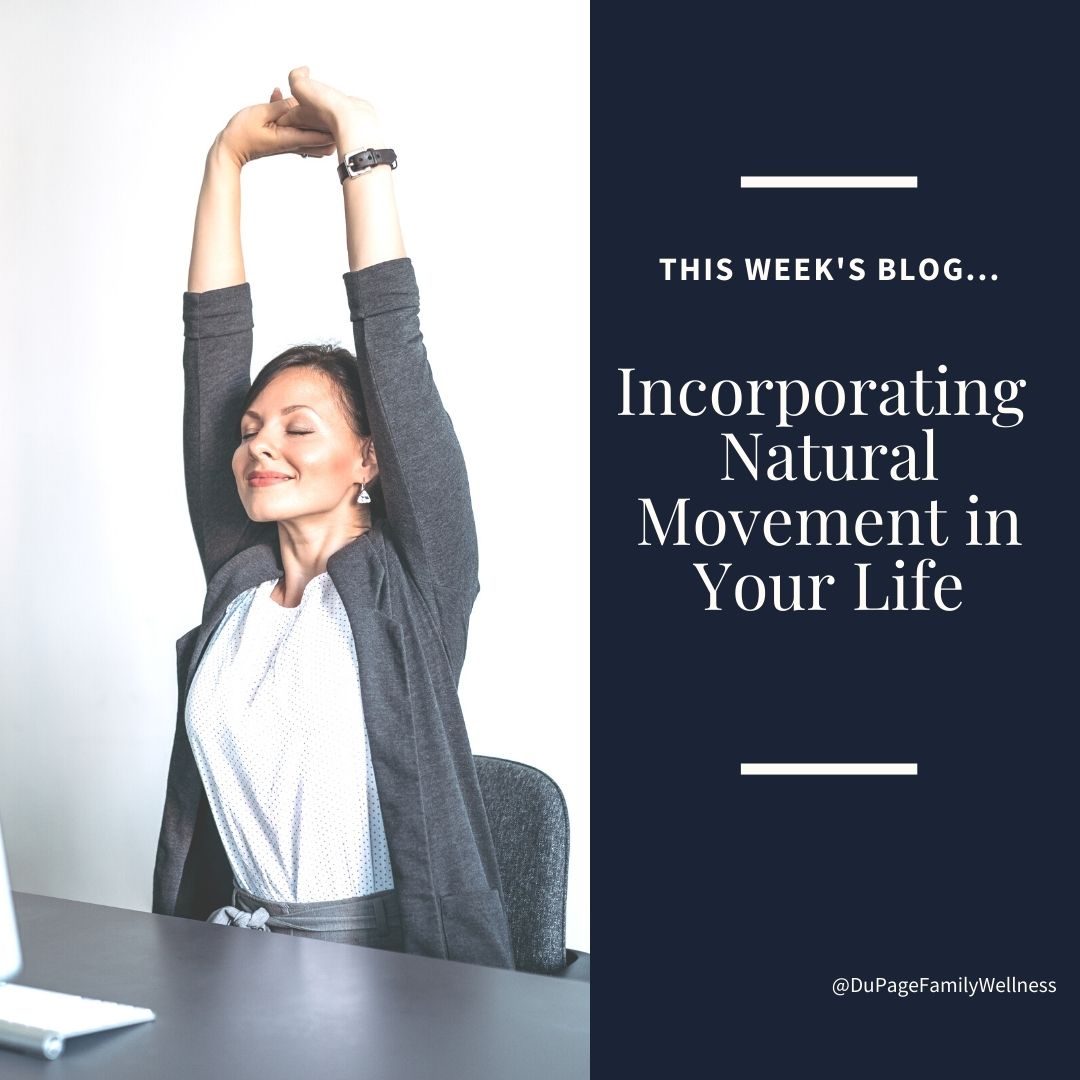 When you think about the history of mankind, setting time aside to exercise is a fairly new concept. Movement was simply a part of life for most of our ancestors, as their survival depended on it. They didn’t need to go to a gym, because they moved to secure food, shelter, and safety!
When you think about the history of mankind, setting time aside to exercise is a fairly new concept. Movement was simply a part of life for most of our ancestors, as their survival depended on it. They didn’t need to go to a gym, because they moved to secure food, shelter, and safety!
Let’s change our mindset around movement to include natural movement into our lives! How can you do this? Choose one of these ideas to start moving today and then add more as you are able.
Functional Movements Ideas
- Walk somewhere instead of driving
- Sit on the floor or stand instead of reclining on a couch or a chair with a back
- Take a movement break at work
- Make a phone call while walking or have a walking meeting
- Skip using a convenient tool or food processor to prepare or chop something, and do it yourself with a knife
- Carry your child instead of using a stroller
- Use the basket instead of a grocery cart
- Water your plants with a pail instead of the hose
- Put on music and dance around your house instead of watching TV
- Take the stairs instead of the elevator
- Walk on an incline
- Try going barefoot
- Park further away at a store
Read more ...
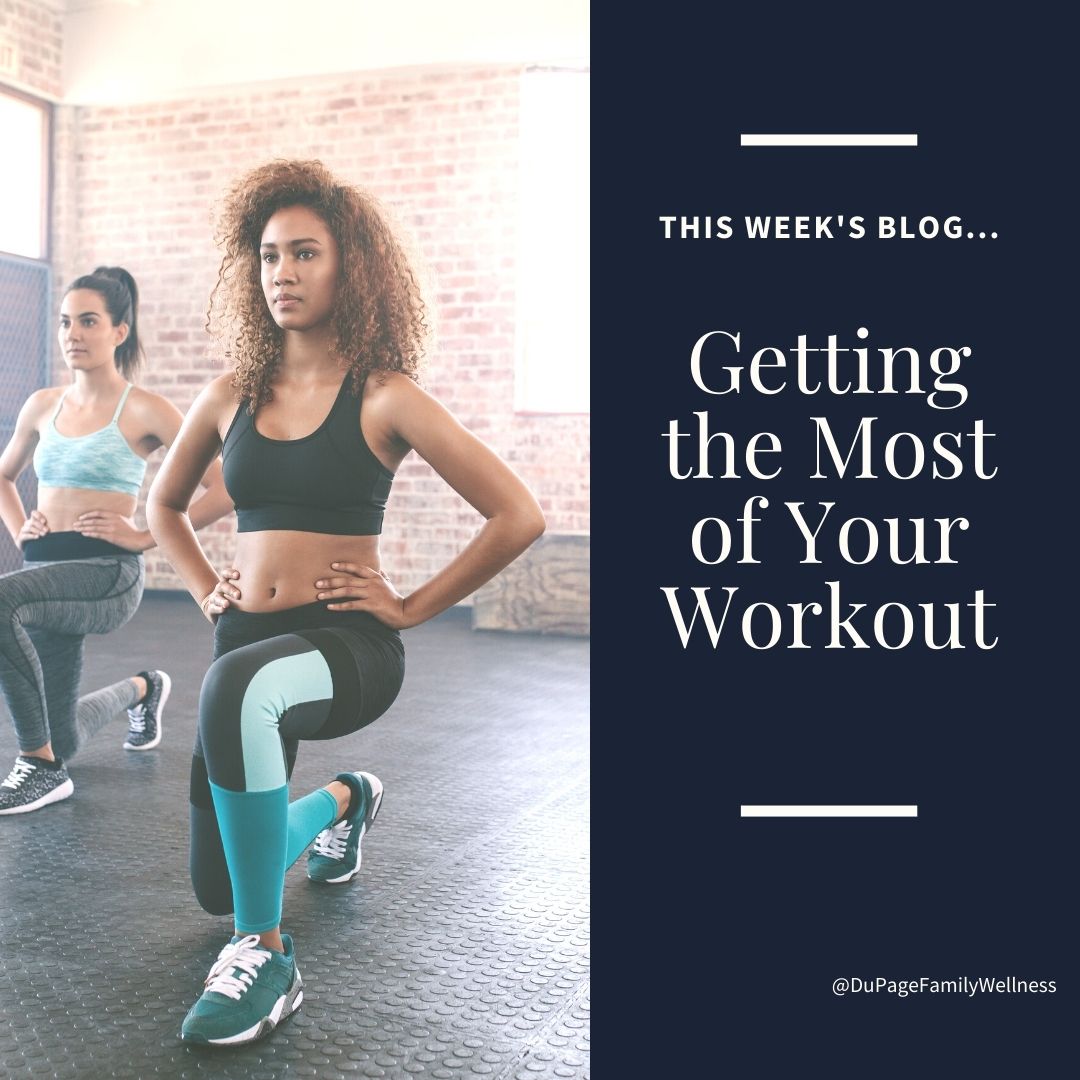 In America, 50% of New Year's Resolutions are to exercise more. But just being at the gym doesn’t mean that you’ll see the results you want. There are some ways of exercising that will get you results faster.
In America, 50% of New Year's Resolutions are to exercise more. But just being at the gym doesn’t mean that you’ll see the results you want. There are some ways of exercising that will get you results faster.
Our culture is so focused on working hard to the point we feel like we have to beat ourselves up in the gym. However, with a little guidance we can work smarter rather than harder.
Let’s look at the “why” behind movement and explore the best exercises for lasting results!
When You Go to the Gym
There is no need to beat yourself up in the gym to get real results. In fact, working hard doesn’t always get the results we would expect.
There was a meta-analysis of 43 studies and the results were shocking! The studies followed overweight and obese people for 3-12 months. People in these studies worked out for 45 minutes 3-5 times a week. This resulted in an average of about 69 hours of exercise over the course of the study. Do you know how much the exercise group lost over that period of time? Only 2.2 lbs.!!! That’s a lot of work for very little results.
So, what specific exercises will get you the results you want? There are two types of workouts that have shown to have the best outcomes. These are High Interval Intensity Training (HIIT) and strength training.
Read more ...
 It's crazy out there, but it doesn't need to be in here!
It's crazy out there, but it doesn't need to be in here!
With all the hustle and bustle of the season, it is easy to get lost in the chaos. Holiday shopping, baking, and buying are all in full swing. Marketers are vying for your attention and dollars. And your to-do-list is probably a mile long!
At this point it's important to remind yourself of what really matters this season. Your family probably won't remember most of the gifts you give them, but they will remember the atmosphere in the home leading up to Christmas. They won't remember the perfect dinner, baked goods, and presents if you are stressed-out and crabby.
So, take time now to look at our biggest tips for handling stress and make a plan for yourself this holiday season!
Grounding
Grounding is simply bringing your awareness back to the present moment by using awareness of your body and surroundings. This is extremely helpful in dealing with stress since most of our worry is about things in the past or things yet to come.
Simply closing your eyes and paying attention to your breath brings you back to the moment. Intentionally looking at things in your surroundings or noticing sensory input can be an effective tool as well. The key is the intention and awareness behind the action.
For more directed grounding exercise check out the following.
Read more ...
 Between work, activities, and family, life can feel pretty overwhelming!
Between work, activities, and family, life can feel pretty overwhelming! 

 Between work, activities, and family, life can feel pretty overwhelming. You may feel like there aren’t enough hours in the day, so there simply isn’t time to get a good night’s sleep. But sleep is one of the most fundamental functions we do each day.
Between work, activities, and family, life can feel pretty overwhelming. You may feel like there aren’t enough hours in the day, so there simply isn’t time to get a good night’s sleep. But sleep is one of the most fundamental functions we do each day.  You’ve heard that you should get eight glasses of water a day, but is that really correct?
You’ve heard that you should get eight glasses of water a day, but is that really correct? When you think about the history of mankind, setting time aside to exercise is a fairly new concept. Movement was simply a part of life for most of our ancestors, as their survival depended on it. They didn’t need to go to a gym, because they moved to secure food, shelter, and safety!
When you think about the history of mankind, setting time aside to exercise is a fairly new concept. Movement was simply a part of life for most of our ancestors, as their survival depended on it. They didn’t need to go to a gym, because they moved to secure food, shelter, and safety! In America, 50% of New Year's Resolutions are to exercise more. But just being at the gym doesn’t mean that you’ll see the results you want. There are some ways of exercising that will get you results faster.
In America, 50% of New Year's Resolutions are to exercise more. But just being at the gym doesn’t mean that you’ll see the results you want. There are some ways of exercising that will get you results faster. It's crazy out there, but it doesn't need to be in here!
It's crazy out there, but it doesn't need to be in here!